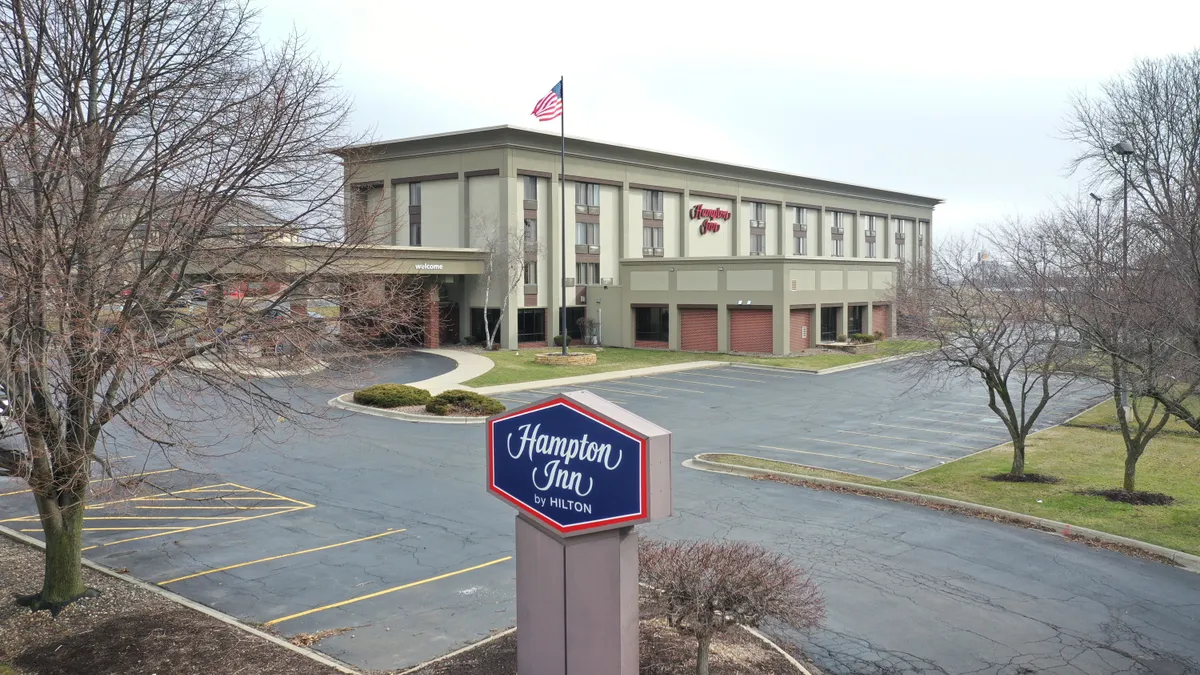As weather warms and travel steadily increases, companies are reconsidering the merits and benefits of pre-pandemic levels of business travel.
According to Alison Taylor, chief customer officer at American Airlines, 47 of the airline’s 50 largest corporate accounts plan to resume traveling this year, she told The Washington Post.
But despite the moves towards normalcy, corporate travel remains 70% lower than pre-pandemic, the Post said. Airlines hope to course-correct business travel this summer.
It's not just airlines; Kevin Jacobs, CFO and president of global development for Hilton Hotels & Resorts, is also betting big on the return of the business trip.
Business travel should return to 70% to 75% of 2019 levels by the end of the year, Jacobs told Yahoo Finance last week.
Jacobs’ predictions run contrary to those of Brian Chesky, CEO of Airbnb, who last week told Yahoo “business travel as we knew it is never fully coming back," and “the bar to get on a plane to go for a meeting is now higher, and fewer people are going to do it."
“[Chesky] is a smart guy. He's built a nice business. So I guess we'll see who ends up being right,” Jacobs said. Unlike Airbnb, Hilton, he added, is “not a huge believer in a new normal; sorry.”
“Our belief is that some business travel will be replaced by technology, and maybe businesses will [conduct] lower value occasions over video conference,” he said, but every one of those trips will be replaced with other high value activities.
Recovery mode
Hilton is “strongly” in recovery mode, Jacobs said a few weeks after the hotel chain shared its first-quarter results, which showed a $109 million net loss.
“We got to about 55% occupancy in March and 60% occupancy system-wide in April, and things have continued to improve from there,” he said. “So we're definitely in recovery and looking forward to a really strong summer travel season.”
Over the holiday weekend, Hilton had its best night since the beginning of the pandemic, company CEO Christopher Nassetta told CNBC, with Hilton Hotels nearly 93% occupied on Saturday across the U.S.
“Our levels of business travel from a volume perspective, were about 50% of what they were in 2019: not great,” Jacobs said. “But I think people are surprised to hear that business travel has been even that strong. And we expect, by the end of the year, business travel will be about 70 to 75% of what it was in 2019. It's been a leisure-led recovery so far, but business will be a fast follow."
Generally, economic activity generates business travel, Jacobs said, arguing that if the workforce will be more heavily remote, that's all the more reason for people to meet and get together.
“If there is some level of permanent decline in business travel, which again, we don't believe will be the case, that just means people have to meet more, because there's no substitute for real human interaction, and people getting together and collaborating to drive their businesses forward,” he said.
“With all due respect to [Chesky], the vast majority of [Airbnb’s] demand is leisure-driven, and a world with no business travel is good for him, so I'll just leave it at that,” Jacobs added.
Supply, demand and labor
As for whether prices will drastically change, Jacobs said Hilton has very sophisticated revenue management algorithms that adjust rates in real time. As demand has recovered, the chain has had no problems generating rates exceeding 2019 levels.
“Other than being really good at revenue management, there's nothing we really need to do strategically to say, ‘hey, look, prices have to be x,’” he said. “Prices will recover, as demand recovers.”
As for the labor market, the federal unemployment insurance program was “really great and helped a lot of people out,” he added. “We really believe it was the right thing to do at the time, but at the moment, demand’s coming back, we have the ability to put people to work, and because of that, some short-term dynamics are making it a little bit tougher to find labor. And when you do find it, you have to pay a little bit more to get it, but we think that those issues will subside as the economy recovers."












